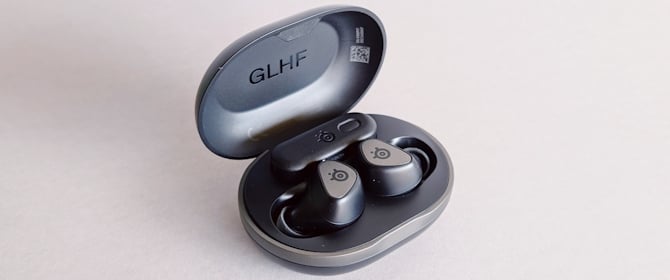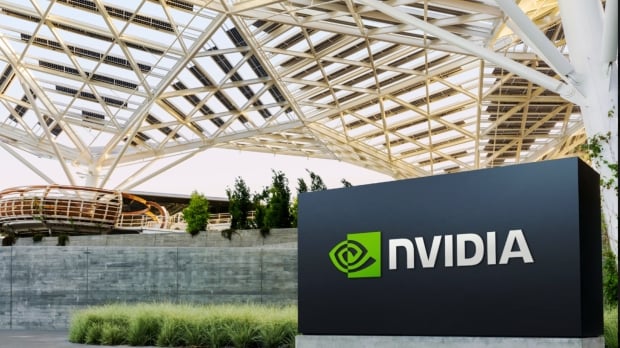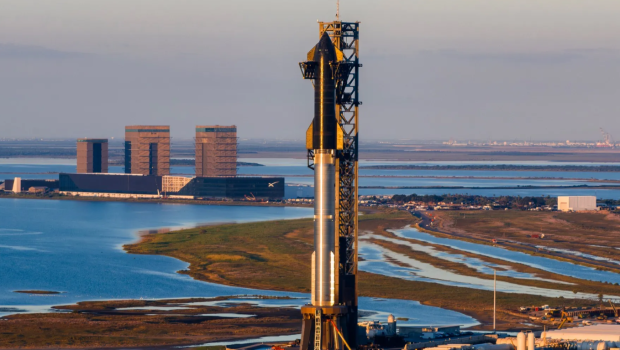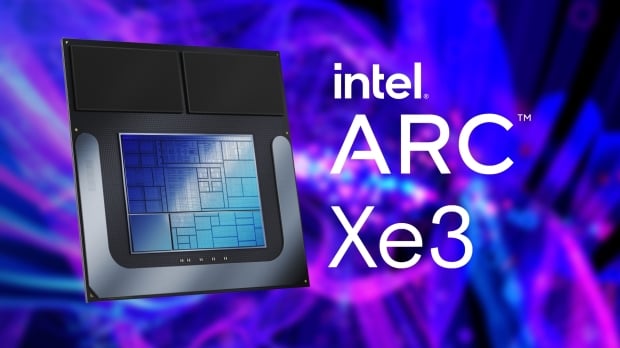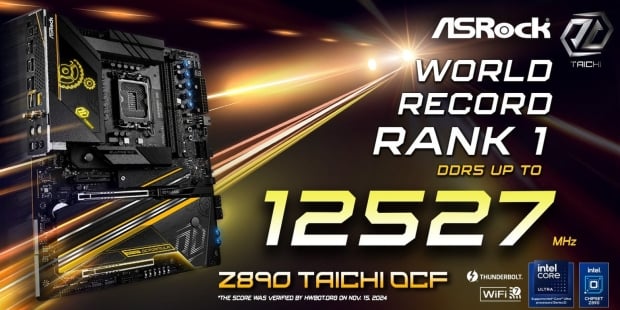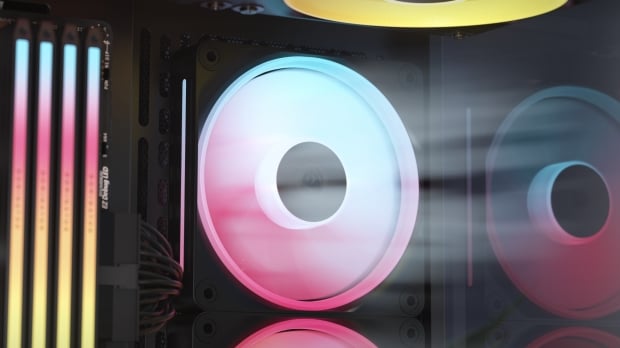NVIDIA's Q3 revenue is up 94% from a year ago, which includes growth for Gaming
NVIDIA has posted its financial results for the third quarter that ended on October 27, 2024. With $35.1 billion in revenue, the company once again exceeded expectations. This figure is 17% higher than the previous quarter and 94% higher than the same period of last year, driven once again by AI and the company's Data Center segment. And with a gross margin of 74.6%, NVIDIA shows no signs of slowing down.
"AI is transforming every industry, company, and country," said Jensen Huang, founder and CEO of NVIDIA. "Enterprises are adopting agentic AI to revolutionize workflows. Industrial robotics investments are surging with breakthroughs in physical AI. And countries have awakened to the importance of developing their national AI and infrastructure."
That's a lot of "AI" in one statement. Jensen Huang also said that the entire planet is shifting toward "NVIDIA computing," which is an incredibly bold thing to say, while confirming that its highly anticipated Blackwell chips are in full production for Data Center, Gaming, and AI PCs.
Flight Simulator flies unfriendly skies with disastrous launch
Xbox takes a reputation hit as Flight Simulator 2024 nosedives at launch.
Flight Simulator 2024 is being described as one of the worst game launches in recent memory. The game has been plagued by a myriad of frustrating issues at release, the most notorious of which freezes loading at 97% while another forces players to wait in login queues for an undetermined period of time. People simply can't get into the game they paid money for and they're making it known across multiple corners of the internet.
In a recent video, Asobo Studio, the developer behind Flight Simulator 2024, explains what went wrong. Quite simply, there were more people trying to play FS 2024 than Asobo had anticipated. The game's servers--which stream data from a huge asset database directly to consoles and PCs--were crushed under the collective weight of what could have been millions of people logging in at once.
Continue reading: Flight Simulator flies unfriendly skies with disastrous launch (full post)
Sony is officially trying to become the owner of Elden Ring developer FromSoftware
After rumors of Sony reportedly being in talks to buy the parent company of critically acclaimed video game developer, FromSoftware, a new buyout offer has been confirmed by the parent company's CEO.
Reuters reported a few days ago that Sony was in talks to buy Kadokawa Corporation, the parent company of FromSoftware, the developers behind beloved and critically acclaimed releases such as Elden Ring and the Dark Souls franchise. At the moment Kadokawa owns approximately 70% of FromSoftware, with Sony owning just under 15% of the developer. If Sony acquired Kadokawa, it would become the majority shareholder and, therefore, be able to control the studio.
In a recent statement Kadokawa confirmed it was in talks with Sony about a possible merger, and that a letter of intent has been acquired. However, no final decision has been made "at this time." Essentially where we are at is Sony has put its cards on the table and offered to buy Kadokawa, in legal writing. Kadokawa's board now needs to review the offer and respond.
Google may soon be forced to sell off Chrome if a judge is convinced
Google may be forced to sell off Google Chrome, the world's most popular internet browser that is home to 61% of all internet users.
The possibility of Google having to sever one of the arms of its core business comes from people familiar with the matter who recently spoke to Bloomberg, which reports top antitrust officials are planning on asking the court on Wednesday for Google to be forced to sell off Chrome, to bring fairness back to the browser market that has been heavily leaning in Google's favor for quite some time.
The changes to Google were proposed by the Department of Justice in a court filing last month and list other measures that would be a blow to Google's business, such as the requirement for data licensing, transparency for advertisers to see where the ads they are paying for appear, and guardrails for consumers to protect them against Google hoarding user data.
Continue reading: Google may soon be forced to sell off Chrome if a judge is convinced (full post)
SpaceX unlocks new Starship development phase after success of 6th flight
SpaceX has just wrapped up its sixth flight of Starship where the company once again expanded the envelop of what's possible with Ship and its booster Super Heavy.
The Elon Musk-led company launched Starship from Starbase on November 19, 2024, with the massive Super Heavy booster engaging its 33 Raptor engines to push Ship to its designated altitude for separation. Once separation was complete, Super Heavy began the process of returning to the launch site for a catch attempt by the launch tower, as was proven possible in Flight 5.
However, during this phase, automated health monitoring checks were conducted on Super Heavy and the catch tower, resulting in risk mitigation processes being triggered, causing Super Heavy to abort the catch tower attempt.
STALKER 2 hits 120+ FPS at 4K on a GeForce RTX 4090 with DLSS 3
S.T.A.L.K.E.R. 2: Heart of Chornobyl is one of the most highly anticipated PC game releases of the year, a sequel to one of the most groundbreaking first-person shooters ever made and a game that has been in development for several years over at GSC Game World. In it, you once again take on the role of a lone stalker, exploring the dangerous 64km-squared radioactive zone of post-apocalyptic Chornobyl.
Powered by Unreal Engine 5, the game's photorealistic seamless open world is set to test even the most high-end rigs. With the game launching with DLSS 3 and Reflex support, NVIDIA has provided internal benchmark results for gaming running on various GeForce RTX 40 Series graphics cards - and it looks like this is one game that requires Frame Generation to run with Max Settings.
At 4K, not even the mighty GeForce RTX 4090 can hit a native 60 FPS - it delivers an average frame rate of 52.4 FPS. However, turn on DLSS 3 (or go RTX On), and this number jumps to an impressive 123.9 FPS. Even the popular GeForce RTX 4070 manages to hit a respectable 73.6 FPS at 4K with DLSS 3.
Continue reading: STALKER 2 hits 120+ FPS at 4K on a GeForce RTX 4090 with DLSS 3 (full post)
Intel is already testing its next-gen Xe3 graphics architecture, but will it come to desktops?
Although we're still waiting for Intel to launch its second-gen Arc desktop 'Battlemage' graphics cards for desktop PCs, with the latest rumors pointing to a December 2024 launch, the Xe2 graphics architecture is already out there as part of the company's latest Lunar Lake Core Ultra 200V mobile chips.
According to a new benchmark listing, Battlemage-next or Xe3 is already being tested internally as part of Intel's upcoming Panther Lake chips. No matter what happens with Intel's ambitions in the gaming GPU space, it certainly looks like Arc graphics will continue to be developed as APUs become more prevalent in mobile devices and gaming handhelds.
As part of its latest Q3 2024 Earnings Call, Intel CEO Pat Gelsinger noted that the future of Arc would involve fewer desktop SKUs and a greater focus on integrated graphics. It will be interesting to see if Intel releases an Xe3-powered desktop GPU or if the technology remains in the mobile space.
Game Awards officially unveils nominees for Game of the Year 2024
2024 is almost at its end, which means The Game Awards are getting close, and now the organization has officially unveiled the nominees for Game of the Year.
In a new live stream The Game Awards unveiled the contenders to win Game of the Year 2024, which comes after the organization announced it was changing its rules to recognize DLCs, expansion packs, new game seasons, remakes, and remasters across all categories. The recent announcement unveiled six nominees for Game of the Year, which include Black Myth: Wukong, Elden Ring Shadow of the Erdtree, Final Fantasy 7 Rebirh, Metaphor: ReFantazio, Balatro, and Astro Bot.
The organization unveiled other nominees in its various other categories, such as Game Direction, Best Ongoing Game, Best Art Direction, Best Mobile Game, Best Narrative, Best Performance, Best Score & Music, Best Audio, Best Adaptation, Best Multiplayer, Best Independent Game, Best Role-Playing Game, and many more. Now the voting begins, with a jury set to select which game wins out of the ones that have been nominated, with fans being able to cast their own vote through to December 11.
Continue reading: Game Awards officially unveils nominees for Game of the Year 2024 (full post)
ASRock's Z890 Taichi OCF motherboard sets new world record, DDR5-12527 MHz
In the land of high-speed DDR5 memory and PC enthusiast overclocking, it's currently world record season. We've seen the max frequency number hit some pretty insane levels. Beating their world record that we reported on a week ago, overclocker AKM has done it again, pushing the memory frequency to an incredible DDR5-12527MHz.
This new record looks captured using the same system, which pairs the latest flagship Intel Core Ultra 9 285K Processor, ASRock's Z890 Taichi OCF motherboard, and V-COLOR Manta XFinity DDR5 memory. The Z890 Taichi OCF motherboard is the common denominator, and it's certainly living up to its "Built for Extreme Overclocking" tagline.
ASRock notes that the Z890 Taichi OCF's design, which includes a 10-layer PCB, server-grade ultra-low-loss material, and ASRock's Memory OC Shield to reduce EMI noise, is tailor-made for enthusiasts and pro overclockers.
Corsair's new LX-R RGB fan feature 18 individually addressable RGB LEDs
Corsair's new LX-R RGB Series of reverse-flow fans might be the perfect option for those putting together an RGB-lit PC gaming rig. Reverse-flow fans are useful for systems with radiator or case intake requirements, and since the Corsair LX-R RGB Series is compatible with the iCUE LINK ecosystem, they can be installed without anything obstructing the light show.
The Corsair LX-R RGB Series fans are available in Black or White and 120mm and 140mm sizes, in packs of two or three, or multi-pack starter kits with an iCUE LINK System Hub. As mentioned in the headline and introduction, these fans are all about that RGB, with each LX-R RGB fan featuring 18 individually addressable RGB LEDs spread across the inner and outer light loop.
The lighting is fully customizable via Corsair's iCUE software, or you can keep it in Time Warp mode, which the company says "creates mesmerizing optical illusions."

